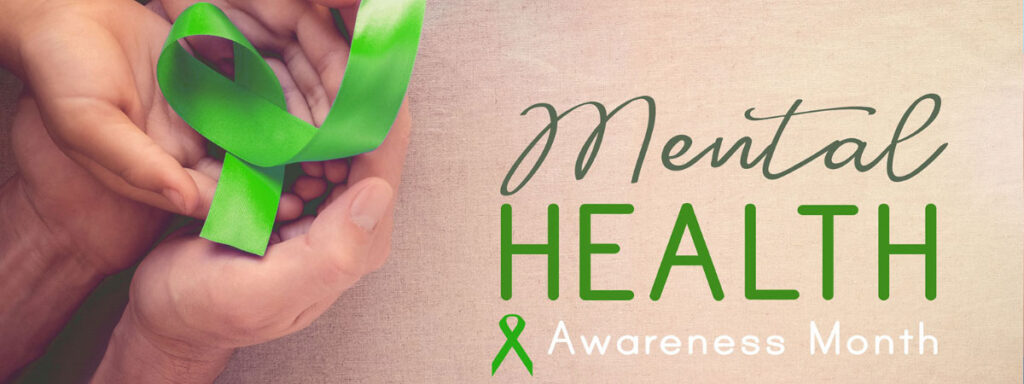Are Allergies Impacting Your Mental Health?

Some people find that their environmental allergies, asthma, eczema, food allergies, and other related allergic conditions are a persistent stressor in their lives — and this impacts their mental health. For Mental Health Awareness Month, we thought we’d spotlight the connection between mental health and allergic disease.
There are direct and indirect links between allergies and anxiety, and this previous blog explains that connection. But, there are a lot of other factors, like fear, drowsiness, and lower quality of life that can also be detrimental to mental health when dealing with a chronic condition like allergy.
Stress and Fear
For those with food allergies, the underlying fear of accidental exposure and life-threatening symptoms can cause a negative effect on mental health — both for the sufferer and for those who care for them. In many different situations — restaurants, events, eating at someone else’s home — food allergic individuals have the added stress of finding safe options, avoiding certain ingredients, and still trying to enjoy their experience.
Experiencing an anaphylactic reaction can also leave people with ongoing stress, and studies find that many are left with symptoms of anxiety and/or Post Traumatic Stress Disorder.
Drowsiness
When someone is exposed to environmental allergies, the body reacts with inflammation to try to expel the allergen from the system. This takes a lot of energy. With an immune system in constant overdrive, it just makes sense that those experiencing allergies may also be tired.
Some may then try to reduce this reaction by taking antihistamines, but that can make drowsiness even worse. It’s a side effect that’s common across different generations of antihistamines and brands.
Lower Quality of Life
Not feeling well physically can have a mental toll and reduce the quality of life for many. Allergy and related conditions can limit life enriching activities, like:
- Those with allergic asthma may not be able to do highly physical activity.
- Environmental allergies may limit travel during peak seasons.
- Sedating meds and ongoing symptoms may zap energy and productivity.
- People with food allergies are often not able to participate in potlucks and group meals and can feel excluded.
When the things that bring people joy are limited, quality of life can be impacted, and that’s one of the reasons people may decide to look for a treatment.
Treat the Cause
When a condition impacts you to such a degree that your mental health is affected, it’s a good time to consider treating the cause. For allergy and allergy-related conditions, this is done through immunotherapy.
Allergychoices advocates allergy drop immunotherapy, where the body is slowly introduced to problematic allergens through liquid doses taken under the tongue until it learns to not react when exposed. With this increased tolerance, accidental exposures may not be as extreme, patients may experience more energy, and quality of life can be improved.
Taking care of your physical and mental health can be made easier and safely with allergy drop immunotherapy.
Find a provider near you that offers this personalized treatment.



